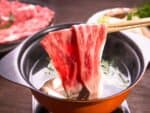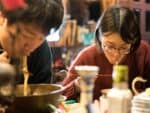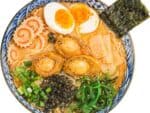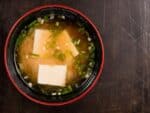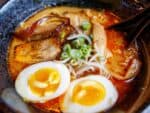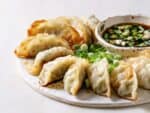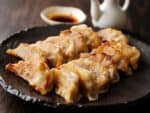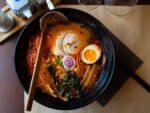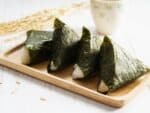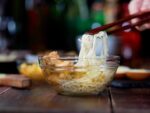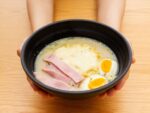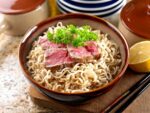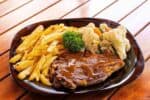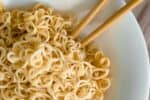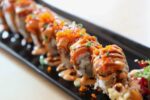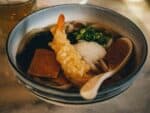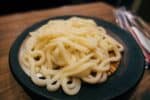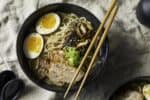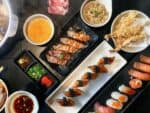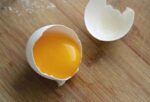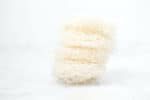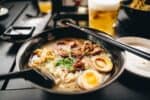Bonsai trees are part of an ancient Japanese art form that’s considered to be a living art. Depending on the tree you are cultivating, some might actually bear fruit, while others will just grow leaves. Among the fruits that can bloom are apples
But are bonsai apples edible? Yes, bonsai apples are edible. Bonsai apples are just like apples that grow on regular trees. Since bonsai trees are trained to remain small, the apples can be smaller in size but they’re not miniature like the bonsai trees themselves.
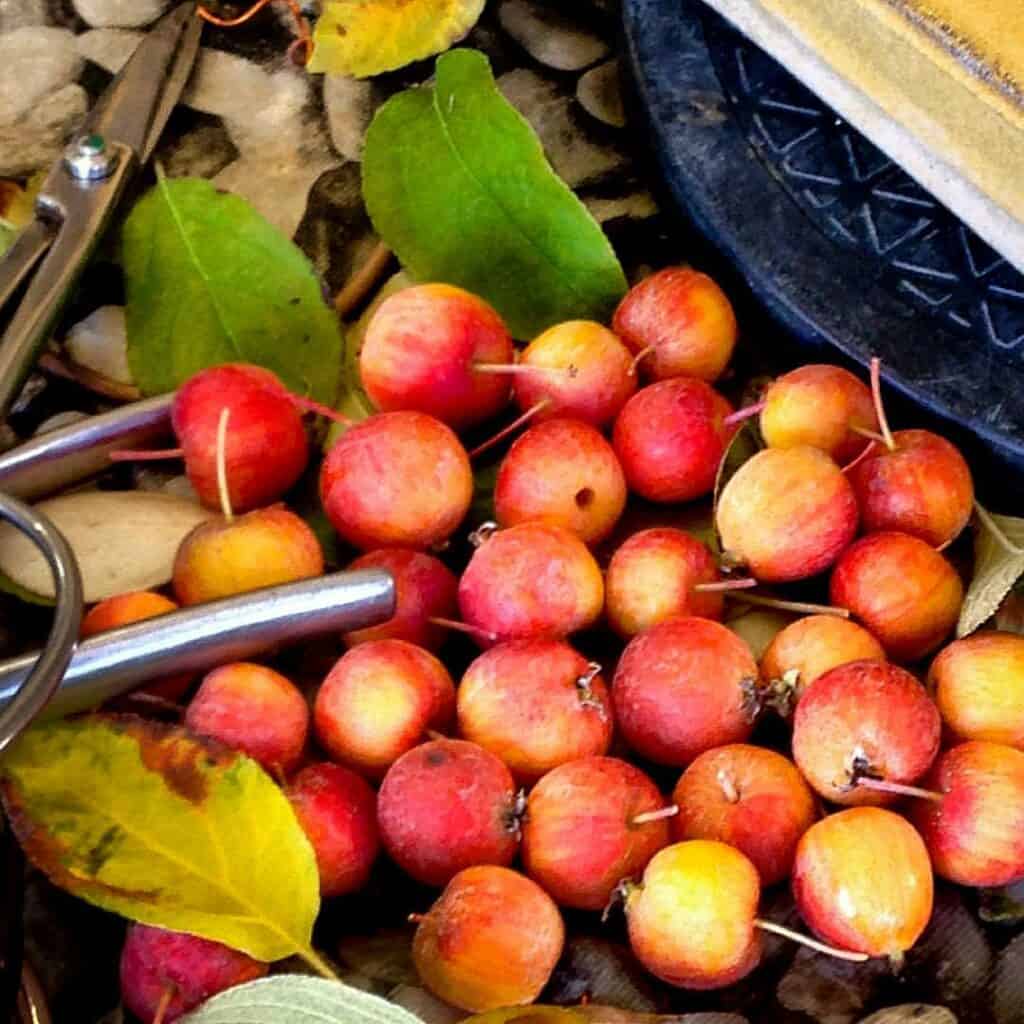

A whole variety of trees can be used with the bonsai art form which includes many fruit trees. Heavier fruits are harder to grow as the smaller branches can’t sustain the weight. However many fruits, including apples, are perfectly suited to grow on bonsai trees.
Can You Eat Apples From A Bonsai Tree?
Any fruit grown on a bonsai tree will be just as delicious as the fruits grown on full-grown trees. These fruits can be used in cooking or eaten straight off the branch, providing they are ripe. Apples that are grown on bonsai trees are no exception and can be enjoyed as they are or as part of a tasty dessert like apple pie.
When you picture a bonsai tree, one with fruit on it probably doesn’t come to mind. The typical bonsai tree that is grown is a small tree with green leaves and sometimes flowers. However, fruit trees are also a great option, especially for people who want to grow fruit indoors but don’t have the space for a full-grown tree.
By choosing to grow an apple tree as your bonsai, you can treat yourself to the apples that fruit, provided you take care of your Bonsai tree. It’s not just any tree that will grow apples. You’ll need to be specific in your choice, all trees being different as well as what grows on it. You don’t need to worry about fruit randomly growing on your bonsai unless you pick a fruit tree.
Found out more about Bonsai trees here :
– Are Bonsai Indoor Or Outdoor Plants?
– Are Blue Bonsai Trees Real?
– Why Do Bonsai Leaves Turn Yellow?
– Who Invented Bonsai?
What Kind of Bonsai Tree Can Grow Apples?
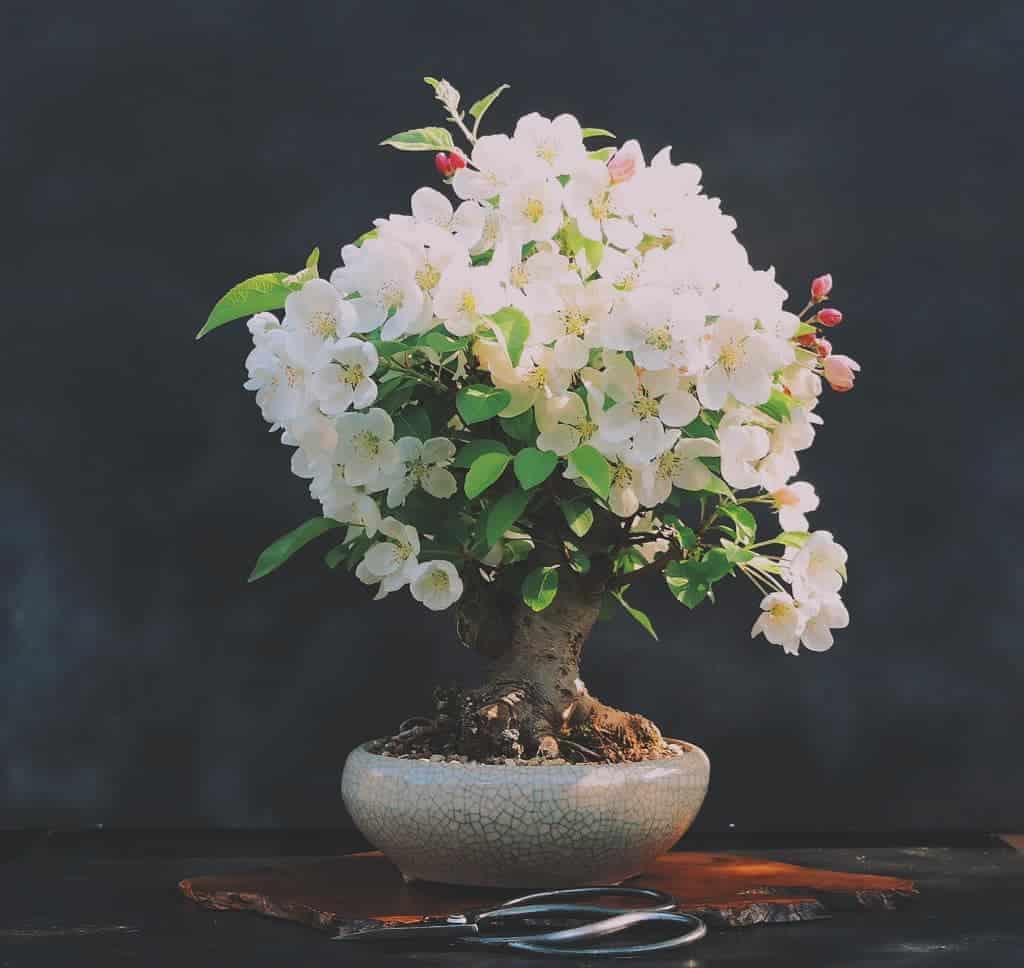
When you are selecting your bonsai tree, you want to make sure you’re selecting the right kind. Many apple trees have been bred to produce larger fruits so they’re not suitable for life as a bonsai. Their branches won’t be able to sustain the weight of a fully grown apple.
Also with regular apple trees, it can take up to seven years before the first fruits appear. This is a massive commitment while you wait for apples to grow. That’s why for bonsai, the best kind of apple tree to buy is the crab apple tree.
The crab apple tree has a much smaller apple and doesn’t take as long to germinate. Making this kind of fruit tree the perfect addition to your home. Crab apples are very tasty and the tree will bloom white or pink flowers in the spring making this tree a beautiful part of your home.
Are Bonsai Trees and Their Fruits Toxic?
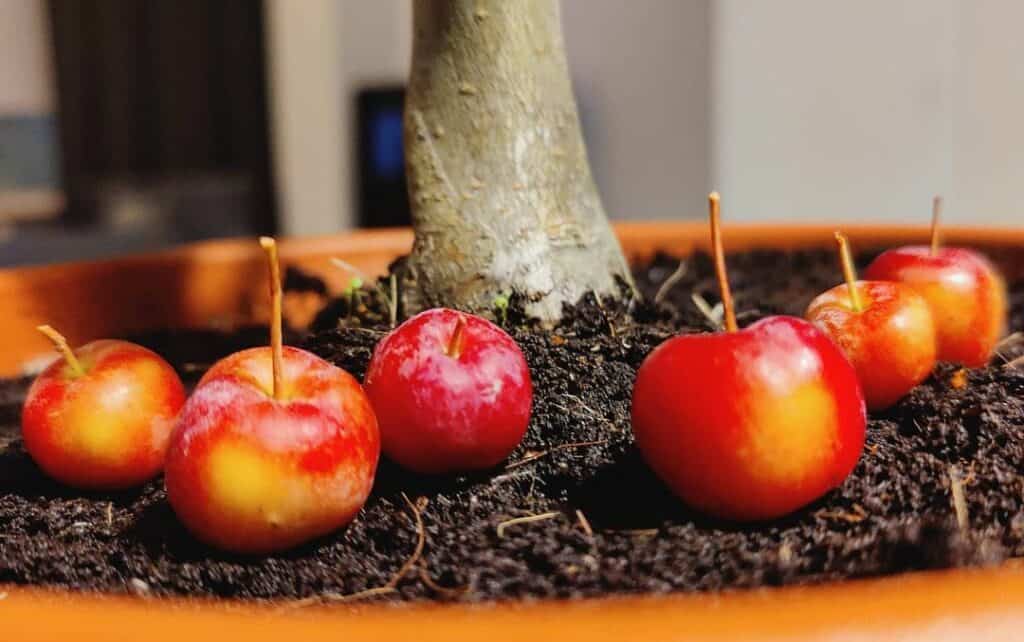
There is a misconception about crab apples in that they are toxic, which is false. Crab apples are the same as regular apples although they are much smaller. To be considered a crab apple, the fruit needs to be less than 2 inches in diameter.
Just like with regular apples, the only part you shouldn’t eat is the core and the seeds. This is because the seeds contain a small amount of cyanogenic glycoside, which can be converted to cyanide in the body. Cyanide is toxic, however the amount of cyanogenic glycoside in the seeds is very small. Swallowing one or two shouldn’t have any adverse effects.
Another thing to be wary of is that some bonsai trees can be poisonous if consumed by cats, dogs, or children. They can even be fatal. If you have pets then you might want to avoid bonsai tree variants such as sago palms or azaleas. Bonsai trees are perfectly safe unless ingested so it’s something to be mindful of with small children and family pets.
What Are Other Popular Bonsai Fruit Trees?
Apples are not the only kind of fruit that can be grown on a bonsai tree, in fact, many small fruits are perfect as bonsai. If you want to grow fruit in your home, a bonsai tree is one of the best ways to do that. Bonsai trees are trained to be small which means they can be kept on a windowsill or other areas within the home.
Berries
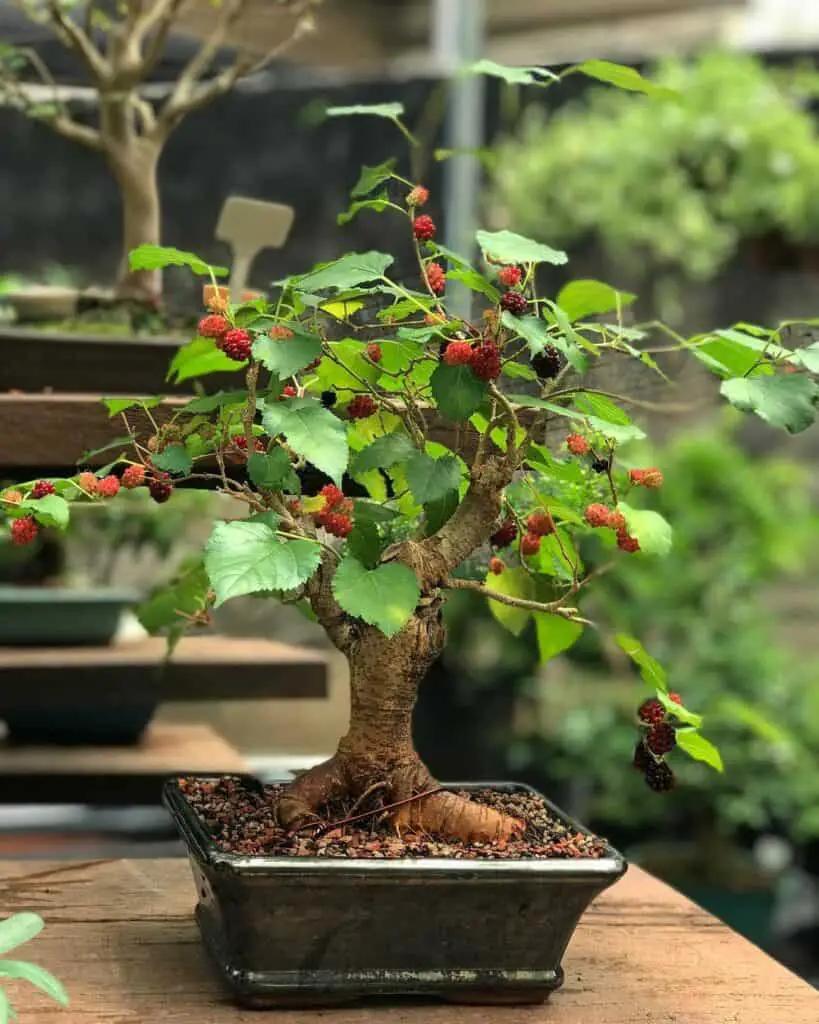
Berry trees are at the top of the list when it comes to options for bonsai trees because the fruits are naturally small. The small size of the fruits helps to make the bonsai tree look more natural. Good options for bonsai trees include raspberry, cherry, and blueberry.
Olives
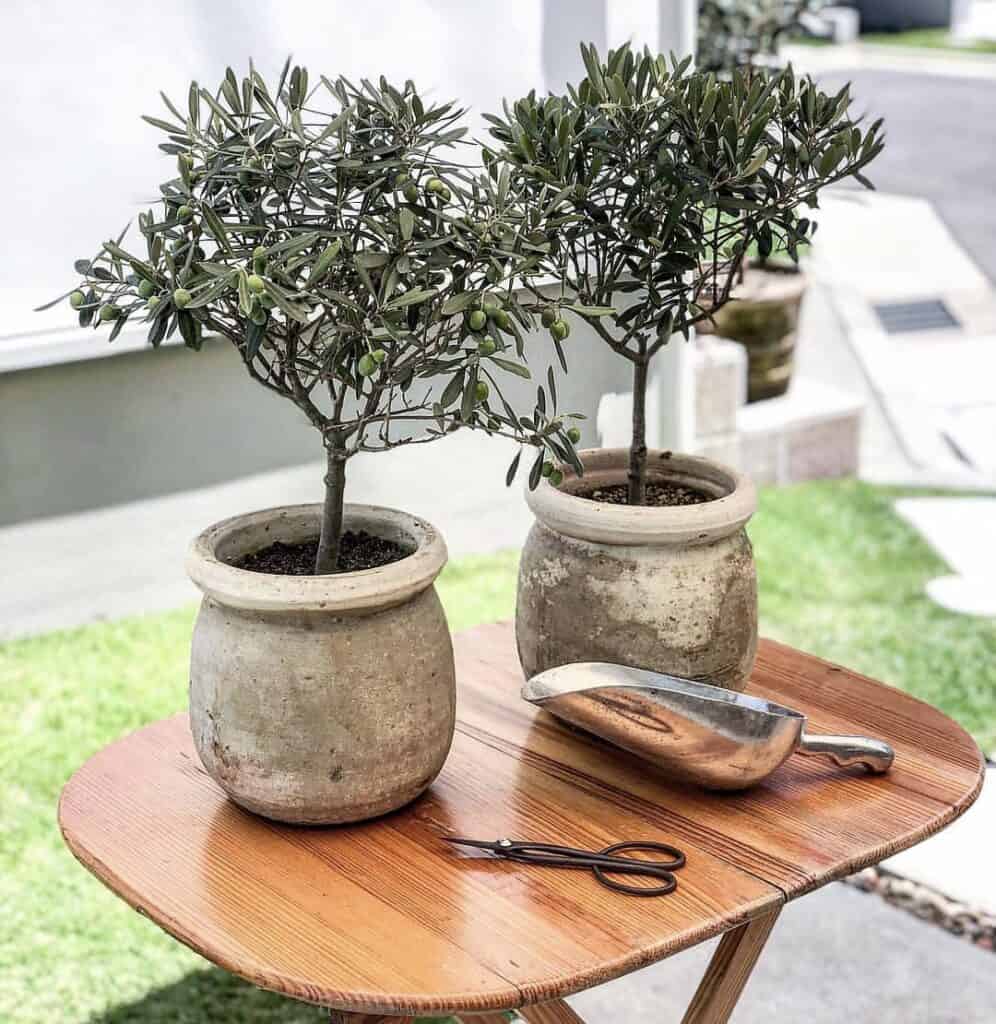
Add a little bit of Greece to your bonsai experience and grow an olive tree. Olive trees are a symbol of peace so they’re thematically well suited as bonsai trees. If you grow olives they’re not edible straight off the tree, they need to be watered and kept in brine over time.
Citrus
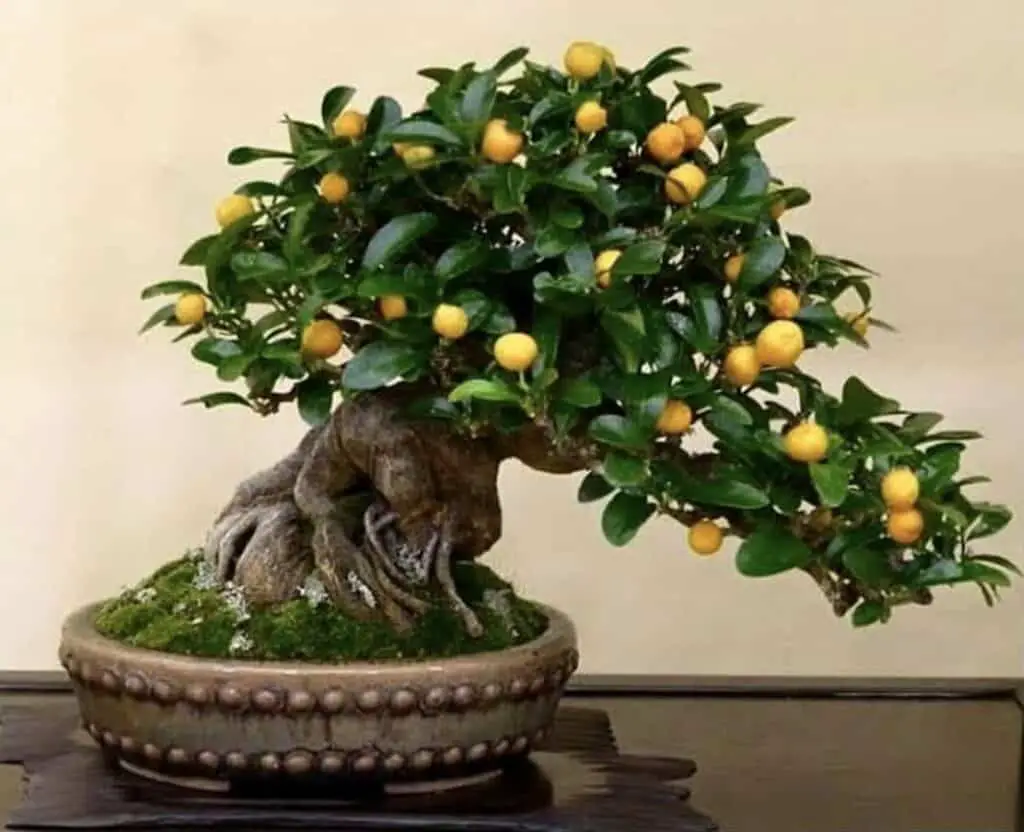
Citrus fruit trees are great bonsai trees because they produce bigger and smaller fruits. Citrus trees can be grown indoors and outdoors, however, they do need plenty of light and during the winter should be kept indoors only. There are plenty of options as well. You can grow oranges, lemons, limes, and mandarins.
Figs
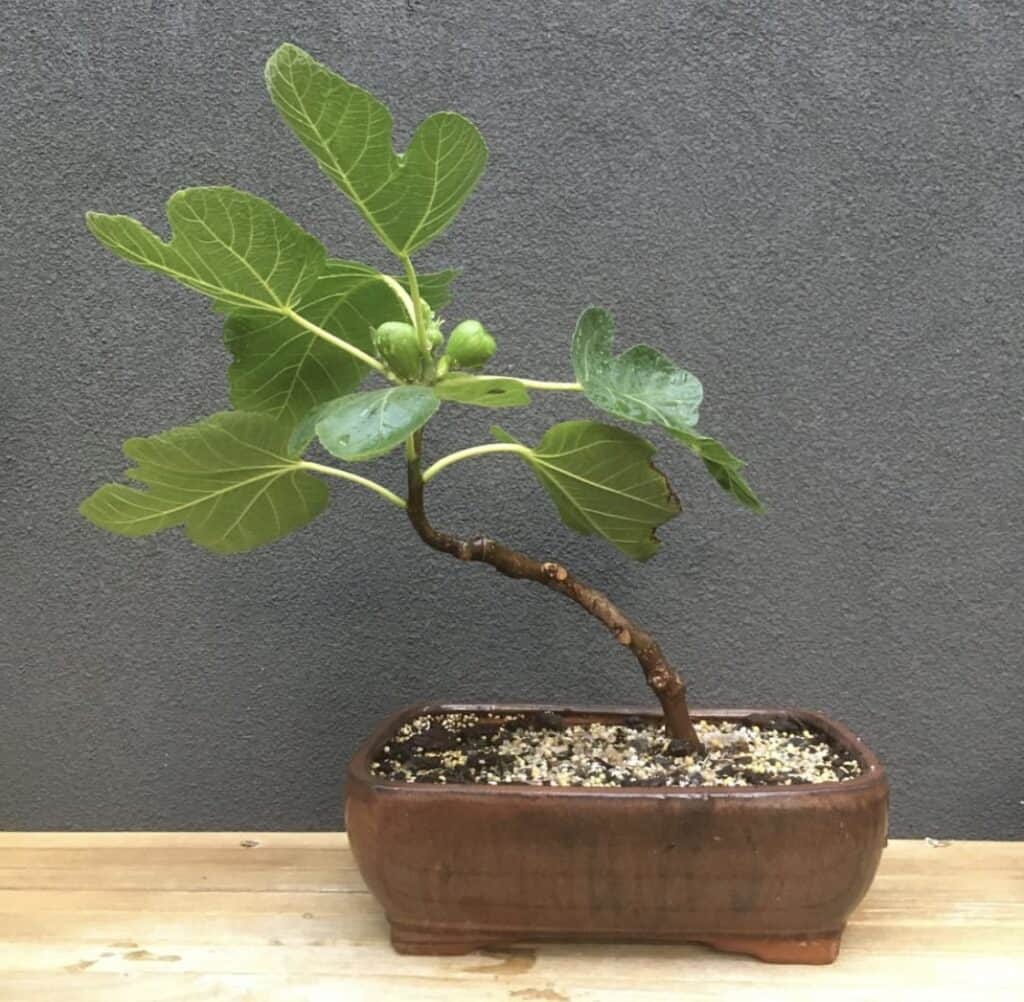
Fig trees are a great option for newbie bonsai practitioners. They have a high tolerance for heat and dryness, making them perfect indoor plants and they also thrive under repeat pruning. Fig trees are a highly popular kind of tree used in bonsai, and its fruits can range in color.
Whether you are new to bonsai or a seasoned professional looking to mix it up, you can be sure that fruit trees are an excellent choice. Apples and a variety of different fruits can be grown in the home and used for eating fresh or cooking. Whatever your end goal is, a fruit tree can be an excellent choice.
